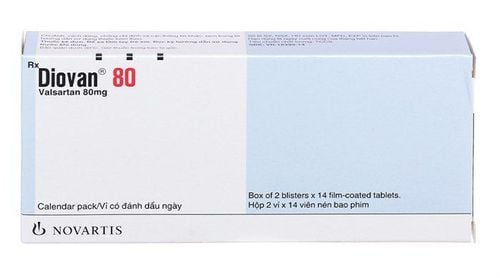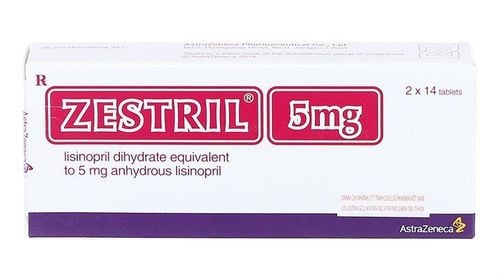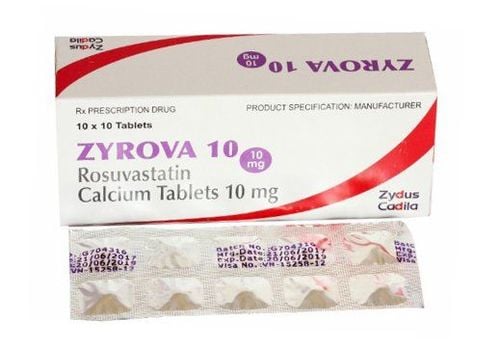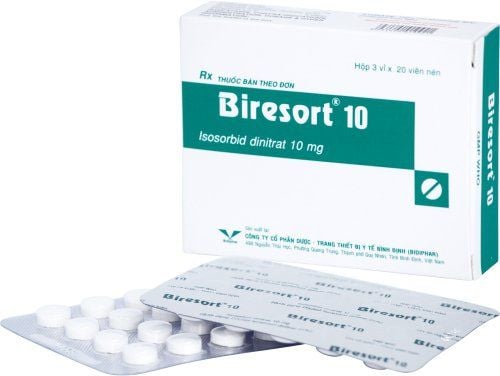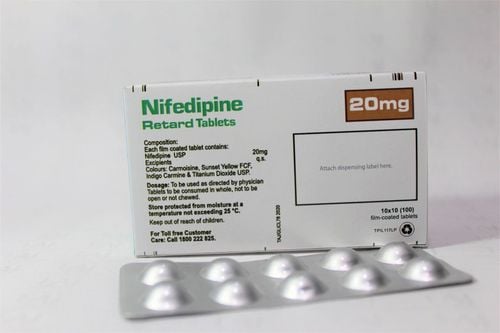This is an automatically translated article.
Isomonit is a drug commonly used to treat chest pain caused by cardiac causes such as angina, heart failure and esophageal spasm, or to treat angina caused by coronary artery disease. To ensure safety for health and maximize the effectiveness of treatment, patients need to take Isomonit drug exactly as directed by the doctor.
1. What is the effect of Isomonit?
Isomonit has the main ingredient is Isosorbide mononitrate, a drug belonging to the nitrate group (medicine used in the treatment of coronary heart disease), Isomonit is indicated for treatment in the following cases:
Treatment of severe heart failure, arterial hypertension pulmonary vessels. Used in the treatment of myocardial infarction because the drug has the ability to narrow the ischemic and extracorporeal area. Treatment of congestive heart failure, especially left heart failure with increased pulmonary capillary pressure and increased peripheral resistance. Treatment of hypertension. Used in the prevention of angina pectoris caused by coronary artery disease. Mechanism of action:
Isosorbid has the ability to relax smooth muscle without affecting cardiac and skeletal muscle, the effect is very obvious on both large arteries and veins, so it promotes venous blood return, dilates large arteries. Therefore, the drug has the effect of reducing the use of oxygen in the heart muscle and reducing cardiac function.
2. Dosage and how to use Isomonit
How to use: The drug is produced in the form of film-coated tablets, used orally, Can be used before or after meals. The drug is absorbed into the body unimpeded by food.
Dosage:
The usual dose is Isosorbid 60 mg x 1 time / day in the morning. The dose can be increased to 120mg/day after the body is better able to tolerate the drug. To avoid headaches during the course of taking the drug, patients can use a starting dose of 30mg/day for 2-4 days.
Contraindications:
Do not use the drug in people who are allergic to Isosorbide mononitrate or any other ingredient of the drug. Do not use this medicine if the patient has blood pressure problems, head injury or bleeding in the brain. Patients with heart problems such as cardiomyopathy, pericarditis or narrowing of the heart valves, severe anemia (low red blood cell count). You are taking medication for erectile dysfunction in men, such as sildenafil. Overdose:
When overdosing on the drug, the patient may experience reactions such as irritability, higher heart rate, low blood pressure, flushing, cold sweats, nausea, vomiting, dizziness, fainting or headache. When this happens, the patient should notify the doctor or go to the hospital immediately for appropriate treatment.
3. Be careful when using Isomonit
Patients with myocardial infarction or acute congestive heart failure should closely monitor clinical and hemodynamics. Use with caution in patients with hypovolemia or hypotension. Use with caution in pregnant women and those who are breast-feeding.
4. Isomonite side effects
Common side effects such as: Headache is the most common reaction at the start of treatment and usually goes away during treatment later, hypotension with manifestations such as dizziness and nausea, syncope . Effects on the cardiovascular system with symptoms such as hypotension, tachycardia. Central nervous system effects are common such as headache, dizziness, and syncope. Gastrointestinal effects include nausea, vomiting, and diarrhea. Effects on the musculoskeletal system: Muscle pain. Skin reactions such as rash, itching.
5. Drug interactions
Sildenafil (also known as Viagra): Concomitant use of Isosorbide mononitrate and Sildenafil or other Phosphodiesterase inhibitors such as Tadalafil and Udenafil may increase the vasodilating effect of Isosorbide mononitrate, causing serious side effects. such as fainting or myocardial infarction, more serious hypotension and life-threatening to the patient. Therefore, Sildenafil should not be administered to patients being treated with isosorbide mononitrate. Calcium antagonists: When combined with isomonit drugs can cause orthostatic hypotension. To avoid this interaction, the dose of either drug should be adjusted. Abacavir, Almotriptan, Alogliptin: Isosorbide mononitrate may decrease the rate of excretion of these drugs and lead to higher serum concentrations. Acebutolol, Aldesleukin: The risk or severity of adverse events may be increased when Isosorbide mononitrate is combined with Acebutolol and Aldesleukin. Adenosine: Adenosine may increase the vasodilator activity of Isosorbide mononitrate. In summary, Isomonit is a prescription drug for the treatment of chest pain caused by heart or coronary artery disease. To ensure safety for health, patients do not arbitrarily use but should consult and consult a doctor before use.




